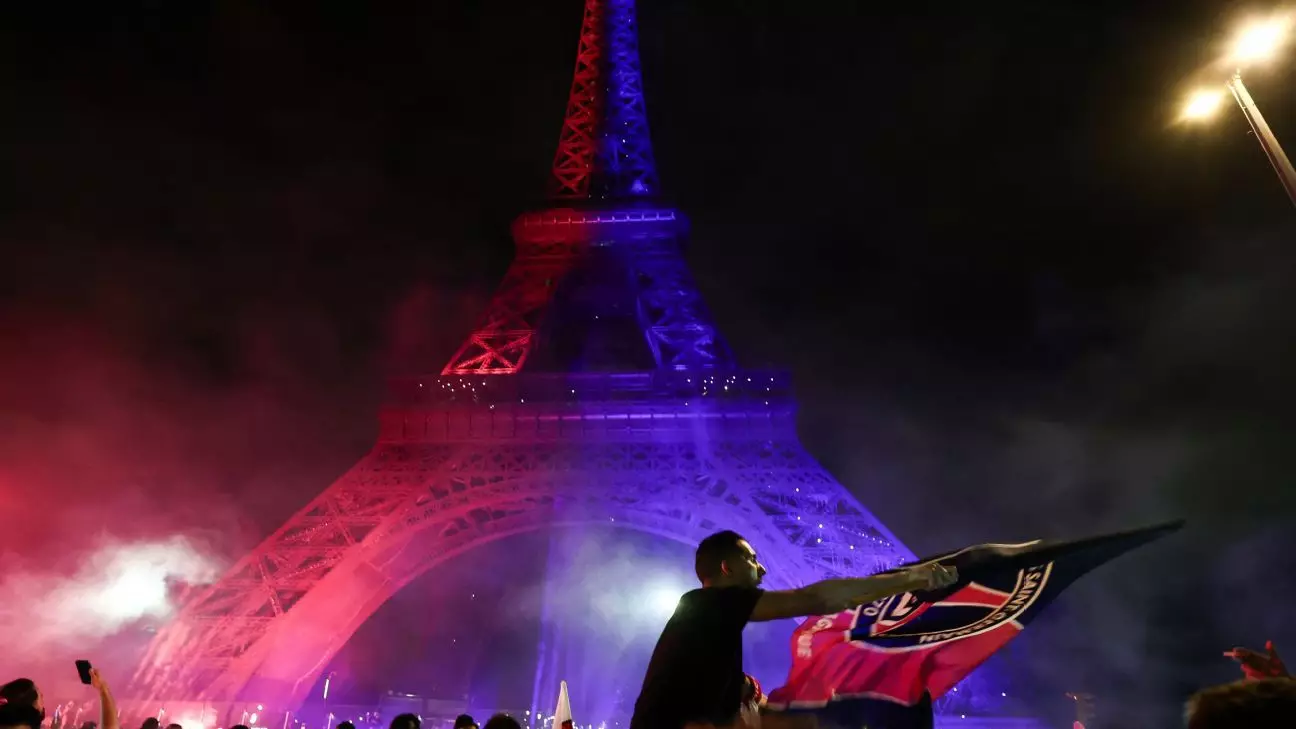The euphoria that swept through the streets of France following Paris Saint-Germain’s first-ever Champions League title is now marred by the tragic deaths of two fans and the grave injury of a police officer. What started as a night of jubilation quickly spiraled into chaos, illustrating the stark ramifications that can accompany national celebrations. The overwhelming joy of PSG fans, who had long waited for this moment, is juxtaposed starkly with the tragic events that unfolded, forcing us to reflect on the darker realities of fan culture and public celebrations.
This victory was not merely a game; it symbolized years of anticipation, investment, and hope for millions of Paris and football fans around the globe. The Eiffel Tower dazzled with the team’s colors as revelers took to the streets for what was supposed to be a night filled with cheers and camaraderie. Instead, the night exposed the underlying tensions that lurk beneath the surface of sports fan culture.
A Night of Contrast
While many fans celebrated responsibly, the atmosphere soured in various locales. The stabbing of a 17-year-old boy in Dax and the tragic accident that claimed the life of a scooter rider in Paris reflect a deep-rooted issue that extends beyond mere sports fandom. Such events raise questions about how we, as a society, view sporting victories. Are these moments of familial connection and joy or invitations for destructive behavior?
The staggering number of injuries, which totaled 192, and the sheer volume of arrests—294 in one night—suggest more than just isolated incidents of poor judgment. The use of tear gas and water cannons in various hotspots around Paris speaks to a community grappling with how to manage passionate celebrations that sometimes turn hostile. The chaos felt like a thunderous wake-up call—a reminder that jubilation can drown in violence in a matter of moments.
Security Measures and Their Implications
In the wake of the disturbances, Paris Police Chief Laurent Nunez made it clear that measures need to be taken to maintain order. A large force of police is deployed during these events, reflecting an almost militarized approach to public safety. While the presence of law enforcement is necessary to deter violence, it raises other pressing questions about civil liberties, the right to celebrate, and the government’s role in ensuring peace without infringing on individual freedoms.
Are we now to accept heightened security measures as part and parcel of a sporting victory? The fine line between protection and oppression becomes more pronounced during such large-scale celebrations, leaving many to wonder whether the passion of football can ever exist without a shadow of police intervention.
Lessons Not Learned
Adding to this troubling tableau is Nunez’s assertion that disruptions from these celebrations often stem from “thousands of people who came to commit acts of violence” rather than to enjoy themselves. This narrative of blame can be dangerous. It shifts the discourse from a broader cultural analysis of what drives such violent behavior in celebratory settings to merely portraying fans as indistinguishable entities beset with violent impulses.
This is not a new phenomenon. Similar issues arose after the 2018 World Cup victory, suggesting that the roots of this violence go deeper than a few misguided souls who chose to act irresponsibly. The patterns are evident: celebration is often interspersed with chaos, and history suggests a cycle we have yet to break. More importantly, it postulates a chilling reality that the very institutions meant to protect society may, at times, only exacerbate feelings of anxiety and unrest.
The Broader Implications for Society
In some ways, the tragedy that unfolded post-PSG’s monumental win serves as a reflection of a society that struggles with its collective identity and expression. Sports have the power to unite, to heal, and to bring forth joy; yet, they also evoke raw passion that can erupt unpredictably. As we witness these poignant moments in our shared history, we must take an introspective look at our values and how we celebrate them.
It is crucial to recognize that while sporting events will invariably produce both joyous celebrations and unspeakable tragedies, our responsibility lies in fostering an environment where the former prevails. By examining this duality, we may begin to understand how to better channel passion into celebration rather than chaos.

